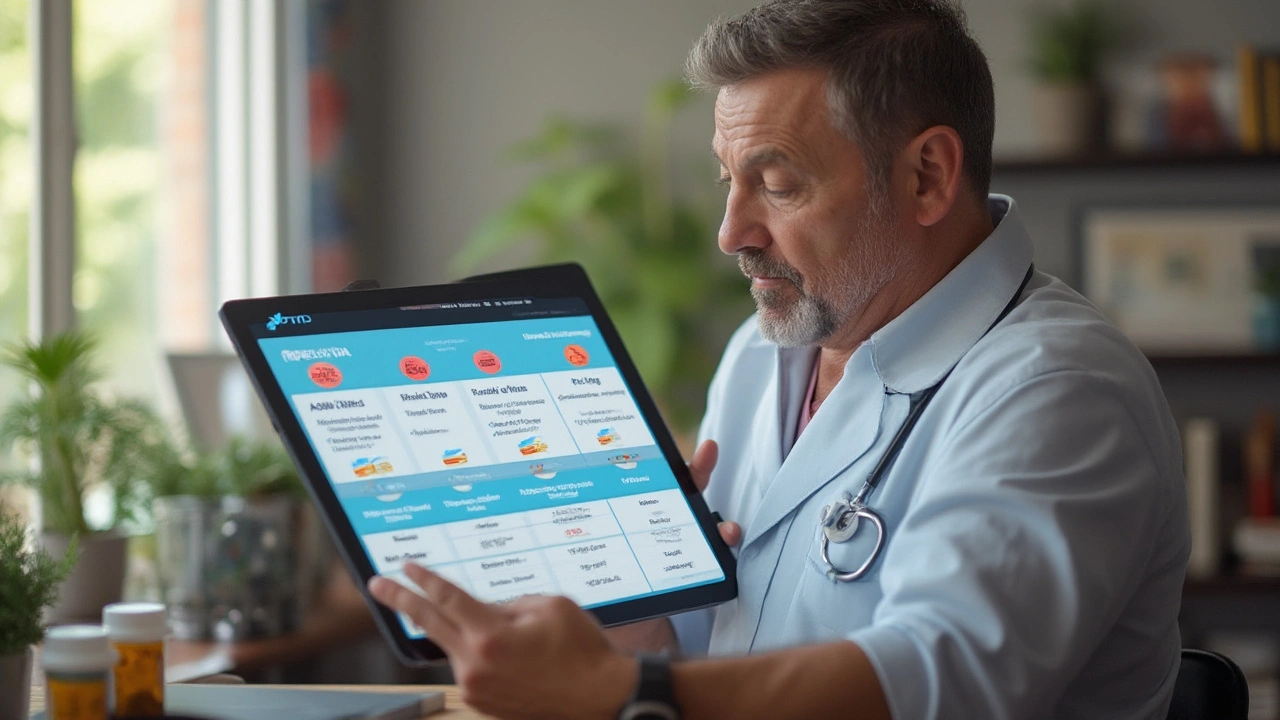Telehealth Competitors: Who’s Shaping the Digital Health Landscape in 2025?
If you’ve ever booked a video doctor visit or ordered meds online, you’ve already dealt with telehealth. But the market is crowded – dozens of platforms claim to be the best. Knowing who actually delivers value can save you time, money, and health risks.
Big Players and Their Core Strengths
Platforms like Teladoc, Amwell, and Doctor on Demand dominate the US market. They focus on fast video appointments, a wide network of doctors, and solid insurance ties. Their pricing is transparent – usually a flat fee per visit – and they offer follow‑up prescriptions that can be sent to any pharmacy, online or brick‑and‑mortar. On the other side, regional services such as Babylon (UK) and MyDoc (South Africa) blend local language support with cheaper rates, making them attractive for users who want a familiar experience. A newer breed of competitors sneaks into the conversation: online pharmacies that combine prescription fulfillment with teleconsultations. Sites like khealth.com, upguys.com, and store‑for‑health.com let you talk to a clinician, get a prescription, and receive the medication at your door. Their edge is convenience – you skip the pharmacy trip entirely – but you need to watch for legitimacy and shipping restrictions.
What Sets the Winners Apart?
1. Safety checks – The best platforms verify doctor credentials, use encrypted video, and flag high‑risk prescriptions. Look for clear privacy policies and a process for confirming your identity. 2. Pricing clarity – Hidden fees are a red flag. Good services list visit costs, medication mark‑ups, and any delivery charges up front. 3. Integrated pharmacy options – When a telehealth app partners with a reputable online pharmacy, you get a smoother handoff from prescription to delivery. Examples include the seamless flow between a virtual visit on khealth.com and its own dispensing center. 4. User experience – Simple apps, short wait times, and clear guidance on what to expect make a big difference. Features like chat support, medication reminders, and easy refill buttons keep patients coming back. 5. Regulatory compliance – Look for platforms that follow local health authority rules, especially when they ship across borders. In South Africa, for instance, sites must adhere to the Medicines Control Council’s guidelines.
Our tag page pulls together articles that dive deep into these topics. From guides on buying Elavil or Mircette safely online, to reviews of how evolutionpeptides.com changes the peptide market, you’ll find concrete examples of how online pharmacies fit into the broader telehealth picture.
In practice, choosing a telehealth competitor means matching your needs to the service’s strengths. If you need a quick consult for a minor skin issue, a low‑cost platform with a chat option might be enough. If you’re managing a chronic condition that requires regular prescriptions, you’ll want a provider that partners with a trustworthy online pharmacy and offers refill reminders.
Keep an eye on emerging trends, too. AI‑driven symptom checkers are starting to triage patients before they even see a doctor, and many platforms are adding mental‑health counseling to their menus. The lines between pure telehealth and full‑service digital pharmacies are blurring, so the best competitor today might be a hybrid tomorrow.
Bottom line: don’t just pick the most advertised name. Check safety, pricing, pharmacy integration, and user reviews. With the right partner, you’ll get faster care, fewer trips to the clinic, and peace of mind that your meds are legit.

RexMD Cost Comparison: Subscription Prices, Consultation Fees & Alternatives
Check out how RexMD's prices stack up against other men's health platforms, including details on subscription plans, consultation fees, and medication costs.